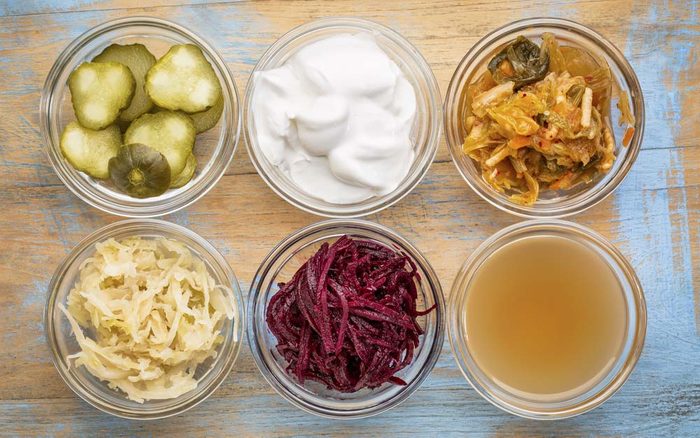
Probiotics 101
Most of us have heard of probiotics; they help restore the balance of good versus bad bacteria in the digestive system. When gut balance is out of whack, you may feel bloated, be constipated, have diarrhea, or experience many other digestive ills. Resetting your gut balance with probiotics may improve these—and many other aspects of health as well. A healthy gut microbiome might even add years to your life.
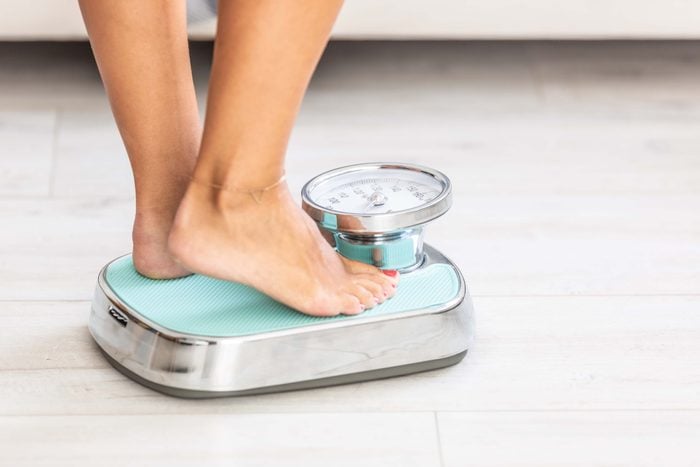
Probiotics for weight loss: evidence mounts
Exactly how probiotics may encourage weight loss is not 100 percent clear, but the evidence is building. “There are a lot of bits and pieces of preliminary evidence that our gut biome and by extension, manipulating it by way of probiotics, may have a positive effect on weight management,” says Scott Kahan, MD, the director of the National Center for Weight and Wellness in Washington, DC. In one interesting mouse study, animals underwent weight-loss surgery or a sham procedure, and as expected, the mice who had the real surgery lost weight. But then the researchers transplanted bacteria from the gut of the weight-loss surgery group into the guts of mice that didn’t—and then they lost weight too! “In a few years, we will know a lot more about the gut microbiome and how to manipulate it with probiotics for weight loss,” predicts Dr. Kahan.
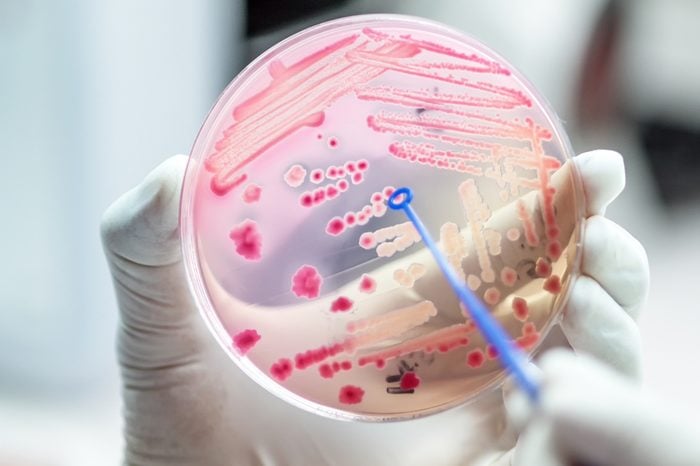
Two types of gut bacteria linked to your weight
To understand the potential affects of probiotics on weight loss you need to start with an understanding of the key players. There are two first-families of bacteria in the gut: Bacteroidetes and Firmicutes. “Lean individuals have a higher proportion of bacteria from the Bacteriodetes family, while obese individuals have more from the Firmicutes family,” says Will Bulsiewicz, MD, a gastroenterologist in Mount Pleasant, SC. “The implication is that by modulating our gut flora to maximize Bacteroidetes and minimize Firmicutes, we can optimize healthy energy harvesting from our food and kick our obesity problem to the curb.” Put another way: “If we choose the right blend of bacteria, the scale can tip in our favor,” he says.
But which are the best probiotics for weight loss?
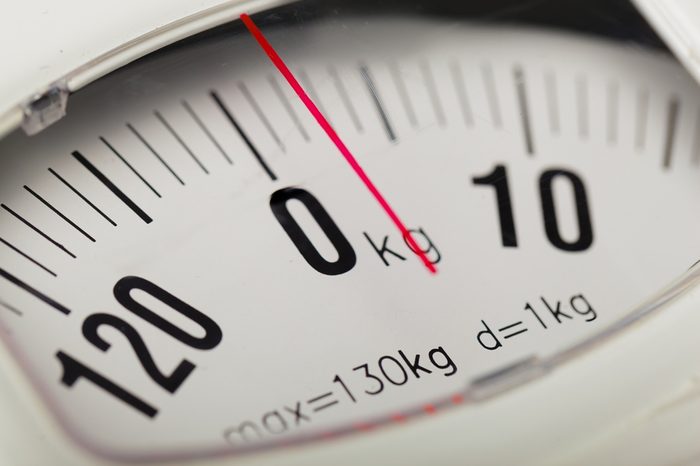
Lactobacillus rhamnosus
This member of the Bacteroidetes family may be the single best probiotic for weight loss. When researchers out of Université Laval in Quebec, Canada placed 125 overweight men and women on a 12-week weight-loss diet, followed by a 12-week period aimed at maintaining body weight, the women who took two probiotics from the L. rhamnosus family daily lost twice as much weight, compared with their counterparts who did not take probiotics. (The probiotics did not affect weight loss in men.) Look for L. rhamnosus on the label of dairy products or supplements—and then learn the best way to store your probiotics.
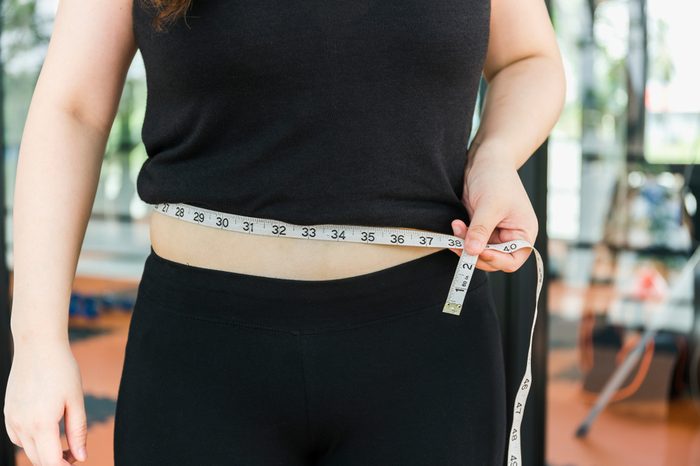
Lactobacillus gasseri
Another potential winner in the Lactobacillus family is L. gasseri, which has been associated with reductions in body weight and fat deep inside the abdomen. One recent randomized, placebo-controlled trial (albeit a small one) found that participants taking high doses of L. gasseri for 12 weeks lost more abdominal fat than those who took the placebo. The best probiotic will have diversity, says Dr. Bulsiewicz. “The ideal probiotic would feature the Bacteroidetes family, specifically several types of Lactobacillus bacteria including L. gasseri,” Dr. Bulsiewicz says. “A perfect example of this is the Advanced Gut Health Probiotic by Genuine Health. It includes ten types of Lactobacillus including L. gasseri. It also has five additional Bacteroidetes bacterial strains.”
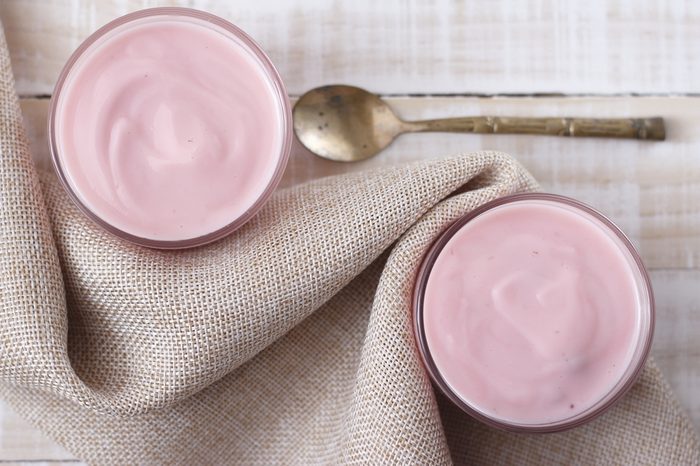
Lactobacillus fermentum, Lactobacillus amylovorus
Among the numerous probiotics for weight loss listed above, there are also L. fermentum and L. amylovorus—two more strains that can help you shed pounds. In one small study, participants who ate yogurt that contained L. fermentum or L. amylovorus lost more body fat during a six-week period than dieters who didn’t. (P.S.: Animal research suggests probiotic-rich foods like yogurt may also help improve mental health.)
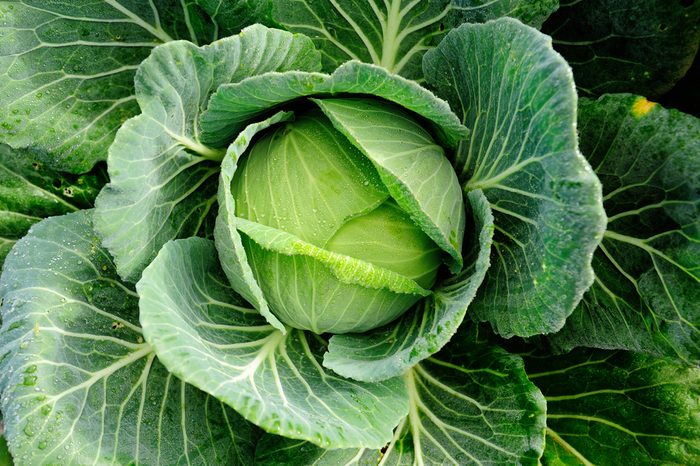
Good for gut health: prebiotic foods
Prebiotics are plant carbohydrates such as inulin and certain saccharides that feed good-for-you bacteria in your gut. Even the best probiotic for women could get a boost from having plenty of this precursor around. Foods high in prebiotic fiber include soy beans, whole-wheat, asparagus, artichokes, onions, and leeks—plus some of these six gut-friendly foods.
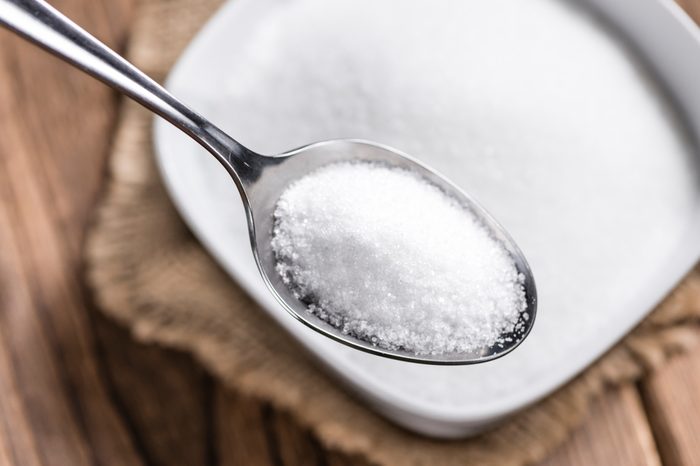
Bad for gut health: fake sweeteners
The best probiotics and foods restore bacterial balance, but others things disrupt it. And one culprit may be artificial sweeteners, says Dr. Kahan. One 2014 study in mice found that when mice ate certain zero-calorie sweeteners, the numbers and types of bacteria in their guts changed—and not for the better. Mice in the study who were fed real sugar did not experience these negative changes.
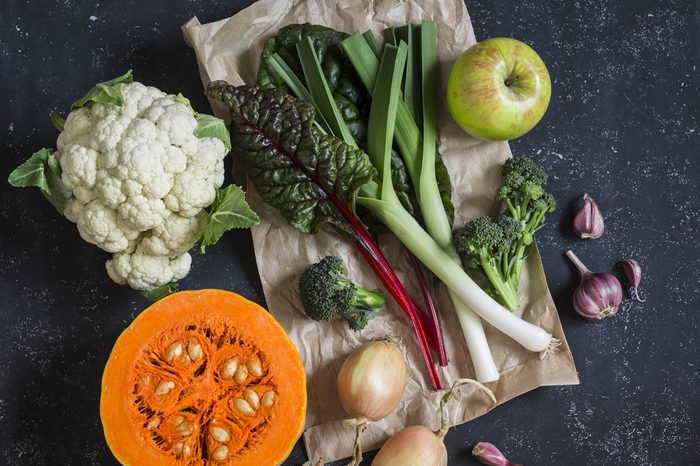
Common sense advice on probiotics for weight loss
One clue you may benefit from a probiotic: If you’ve recently taken antibiotics. Antibiotics destroy many strains of gut bacteria, including helpful ones; so next time you are prescribed antibiotics, ask your doctor if you should take probiotics at the same time. “It’s also smart to eat in ways that promote a healthy gut,” says Dr. Kahan. Diets rich in fruits, vegetables, whole grains, and beans tend to promote healthy gut microbiome, he says.

